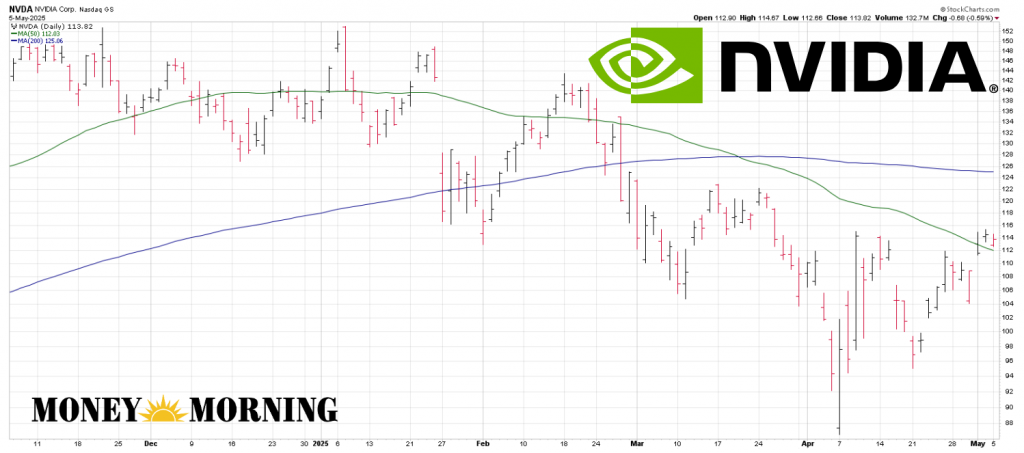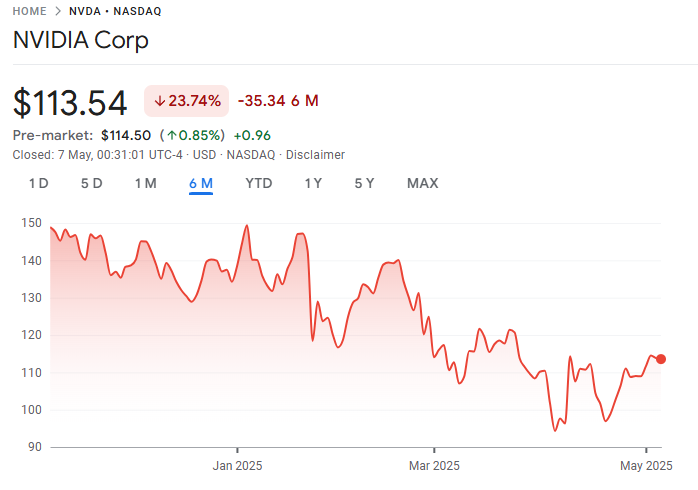Nvidia Chip Export Restrictions: CEO Warns Legislation Could Impact NVDA Stock

NVIDIA chip export restrictions are intensifying as CEO Jensen Huang has recently warned about potential losses in the Chinese market, while also lawmakers have been working on drafting new tracking legislation. Currently, the Trump administration has restricted the shipment of NVIDIA’s H20 chips to China without a license, which has prompted a $5.5 billion quarterly charge that has negatively impacted the company’s stock price.
Huang stated:
“China’s artificial intelligence market will likely reach about $50 billion in the next two to three years, and that missing out on it would be a ‘tremendous loss.'”
Also Read: Japan’s $1.1 Trillion in U.S. Treasuries: A New Weapon in Economic Warfare
Jensen Huang Defends China Access as New Tracking Bill Targets AI Chip Smuggling

A bipartisan bill targeting NVIDIA chip export restrictions and chip smuggling has been introduced recently by U.S. Representative Bill Foster. The legislation would verify AI chip locations after sale and also prevent unauthorized activation. This move comes after numerous reports of these chips being smuggled into China despite the existing restrictions that have been in place for some time.

Huang had this to say on the topic:
“We just have to stay agile. Whatever the policies are of the government, whatever is in the best interest of our country, we’ll support.”
Financial Impact on NVIDIA’s Future
The financial consequences of these NVIDIA chip export restrictions have been substantial. NVIDIA shares have declined approximately 15% this year after nearly tripling in 2023. China generated around $17 billion in revenue for NVIDIA last fiscal year, which accounted for about 13% of total sales.
Also Read: Chainlink: AI Predicts LINK’s Price For May 10

The newly proposed legislation allocates six months for Department of Commerce to create tracking rules. As Chinese technology companies accelerate efforts to create homegrown replacements for NVIDIA products the US government uses this opportunity to introduce restrictive regulations.
Huang is also conviced by this:
“The world is right now hungry, anxious to engage AI. Let us get the American AI out in front of everybody right now.”
Also Read: AI Predicts How High NEAR Will Rise In May 2025
H20 export controls and new tracking measures create substantial hurdles which threaten to impede NVIDIA’s growth strategy. The expected yearly revenue growth stands at 65% between previous years but will reach $43.1 billion while NVIDIA deals with decreased performance because of chip export restrictions throughout global markets.
Nvidia Chip Export Restrictions: CEO Warns Legislation Could Impact NVDA Stock

NVIDIA chip export restrictions are intensifying as CEO Jensen Huang has recently warned about potential losses in the Chinese market, while also lawmakers have been working on drafting new tracking legislation. Currently, the Trump administration has restricted the shipment of NVIDIA’s H20 chips to China without a license, which has prompted a $5.5 billion quarterly charge that has negatively impacted the company’s stock price.
Huang stated:
“China’s artificial intelligence market will likely reach about $50 billion in the next two to three years, and that missing out on it would be a ‘tremendous loss.'”
Also Read: Japan’s $1.1 Trillion in U.S. Treasuries: A New Weapon in Economic Warfare
Jensen Huang Defends China Access as New Tracking Bill Targets AI Chip Smuggling

A bipartisan bill targeting NVIDIA chip export restrictions and chip smuggling has been introduced recently by U.S. Representative Bill Foster. The legislation would verify AI chip locations after sale and also prevent unauthorized activation. This move comes after numerous reports of these chips being smuggled into China despite the existing restrictions that have been in place for some time.

Huang had this to say on the topic:
“We just have to stay agile. Whatever the policies are of the government, whatever is in the best interest of our country, we’ll support.”
Financial Impact on NVIDIA’s Future
The financial consequences of these NVIDIA chip export restrictions have been substantial. NVIDIA shares have declined approximately 15% this year after nearly tripling in 2023. China generated around $17 billion in revenue for NVIDIA last fiscal year, which accounted for about 13% of total sales.
Also Read: Chainlink: AI Predicts LINK’s Price For May 10

The newly proposed legislation allocates six months for Department of Commerce to create tracking rules. As Chinese technology companies accelerate efforts to create homegrown replacements for NVIDIA products the US government uses this opportunity to introduce restrictive regulations.
Huang is also conviced by this:
“The world is right now hungry, anxious to engage AI. Let us get the American AI out in front of everybody right now.”
Also Read: AI Predicts How High NEAR Will Rise In May 2025
H20 export controls and new tracking measures create substantial hurdles which threaten to impede NVIDIA’s growth strategy. The expected yearly revenue growth stands at 65% between previous years but will reach $43.1 billion while NVIDIA deals with decreased performance because of chip export restrictions throughout global markets.

